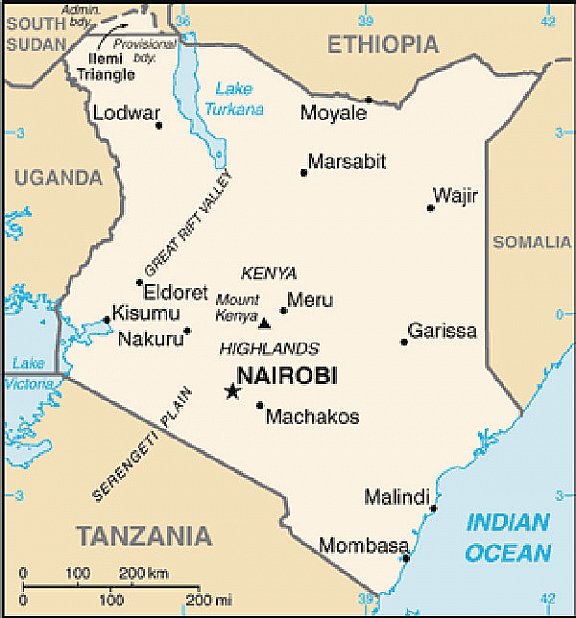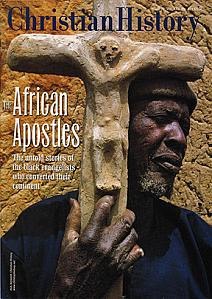To Better Meet African Needs, Ajuoga Created a Home-grown Church

CIA map of Kenya.
THE STORY OF AJUOGA and the JoHera church is a story about the explosive growth of Christianity in Africa in the twentieth century.
During a revival of Christianity in Kenya, Matthew Ajuogo pleaded with white Anglican churchmen in Kenya to adopt a new attitude toward African Christians. In 1953, citing a recent translation of the Bible into his native Luo language, he pointed out that the word “hera” meant “brotherly love.” However, he said, the English bishops were not treating their African counterparts with love. Instead, they were lording it over them and discriminating against them. He pleaded with Bishop Beecher of Mombassa for change.
For four years he continued to seek change from within the Anglican church while urging the people in the African renewal movement Johera (People of Love) to stick with the Anglicans. But when the British colonialist churchmen threw several pastors out of their churches and demoted Ajuoga in 1957, he led sixteen thousand Africans out of the Anglican church. Violent clashes followed with other breakaway groups. Rivals burned each others’ churches to the ground.
On this day, 8 January 1958, the JoHera movement registered with the government of Kenya as The Church of Christ in Africa. That same year Ajuoga asked the Archbishop of Canterbury to recognize and ordain him. The archbishop told him he would have to submit to Beecher. Ajuoga replied that the JoHera council would not permit this unless Beecher were to show a “real change of mind and spirit in Christian love.” In subsequent years, the World Council of Churches twice refused to recognize JoHera, which eventually joined the International Council of Christian Churches, a fundamentalist organization.
As Africans threw off colonial bonds, hundreds of charismatic and cultic groups sprang up, but JoHera remained orthodox. Ajuoga created ecumenical ties with fundamentalist churches around the world and JoHera spread into neighboring African countries. By 1990 it had two hundred thousand members and had established an impressive string of schools.
—Dan Graves
----- ------ ------
For more stories of modern african leaders, see Christian History #79 African Apostles: Black Evangelists in Africa






